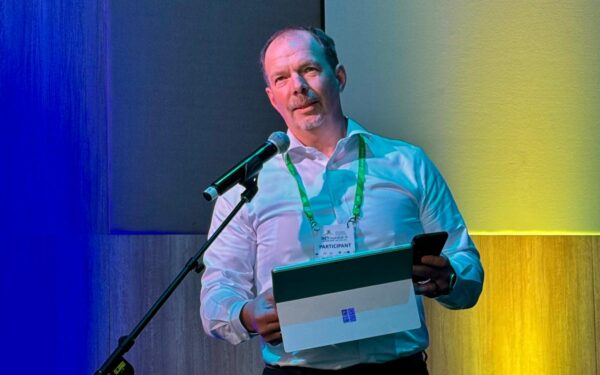Byron Holland reflects on the final report from the Panel on Global Internet Cooperation and Governance Mechanisms.
The final report from the Panel on Global Internet Cooperation and Governance Mechanisms was released today. I spent the past six months working with this group of bright and committed individuals to come up with a set of recommendations to evolve the Internet governance ecosystem and position it for the future.
The Internet is at a critical point in its development – reforming the institutions that govern it has never been more important. When we started out as a newly formed panel six months ago, we had high expectations and lofty goals. The panel was prepared to come out strong on the internationalization of the IANA contract and a set of principles to guide the Internet governance discourse for several years.
At that time, those goals seemed almost like pipe dreams. Sure, we would recommend them and believed them to be critical to the continued success of the Internet, but we were concerned about how to sell the transitioning of the stewardship of IANA functions away from the U.S. government in in the short term. Then, midway through our process, the NTIA made their landmark announcement to not renew the IANA contract when it expires in September 2015. And, the NetMundial conference was a great success, producing a set of principles to guide the evolution of the Internet and its governance structures.
None of us in the governance world had foreseen it happening – both are good for the Internet, but unexpected. It was kind of like we had poured the foundation for a new house only to find out that the construction site had moved. The recent past has been like no other in the history of the Internet governance ecosystem. With NTIA’s announcement and the outcome document from NetMundial, I think the Internet ecosystem evolved more than any of us could have anticipated in such a short period of time. That said, I’m proud to have played a role on the panel, and I’m proud of the report we released today.
The work of the panel has had, and I believe will continue to have, an impact in the Internet governance world. I was definitely pleased to see the panel’s submission to the NetMundial conference reflected in the principles in its output document. And, the principles contained in our report will contribute to the global discourse as we endeavour to maintain a free and open Internet while adding two billion users online over the next few years.
What struck me about the process were the people involved. The panel was comprised of a group of individuals representing the geographic and multi-sector diversity encompassed by the Internet. Simply put, it wasn’t just the usual suspects from the Internet governance world. That diversity can also be a challenge –a plethora of opinions comes with it, leading to many robust and healthy discussions. What we did have in common, however, was a passion for representing our community effectively and a commitment to the free and open Internet.
It was a privilege to work with this group of great thinkers on a report that I believe will be instrumental in the development of the Internet governance systems and structures. I encourage you to read the report, and let us know what you think.
Byron Holland (MBA, ICD.D) is the president and CEO of the Canadian Internet Registration Authority (CIRA), the national not-for-profit best known for managing the .CA domain and developing new cybersecurity, DNS, and registry services.
Byron is an expert in internet governance and a seasoned entrepreneur. Under Byron’s leadership, CIRA has become one of the leading ccTLDs in the world, with over 3 million domains under management. Over the past decade, he has represented CIRA internationally and held numerous leadership positions within ICANN. He currently sits on the Board of Directors for TORIX, and is a member of the nominations committee for ARIN. He lives in Ottawa with his wife, two sons, and their Australian shepherd, Marley.
The views expressed in this blog are Byron’s opinions on internet-related issues, and are not necessarily those of the organization.





